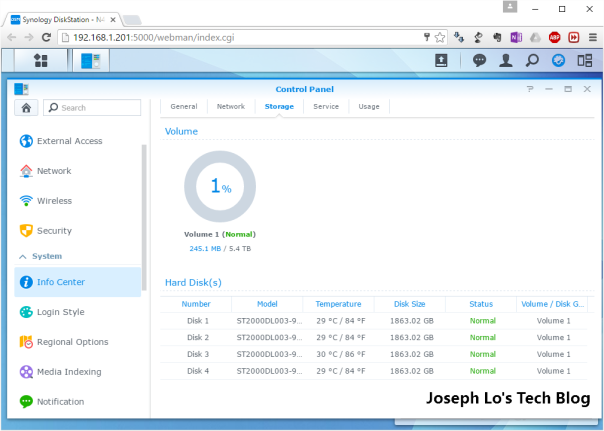Buffalo Linkstation Install Optware Ipkg
Posted : admin On 24.09.2019Aug 28, 2011 - 1.1.2.1 Linkstation Pro/Linkstation Live/Linkstation EX; 1.1.2.2 Linkstation XHL/CHLv2/VL; 1.1.2.3 Linkstation Pro DUO/Terastation Pro v2/Terastation. /mnt/disk1/opt or /mnt/array1/.optware is created.and it gets mounted to /opt from now on. In /opt several folders are created; ipkg gets installed to. Installing Optware, SickBeard, CouchPotato, and NZBGet on Buffalo Linkstation LS-VL. Ipkg upgrade This will install Optware. Then type: acpcommander.jar -t IP.OF.THE.BOX -o -addons Be sure to have your Firewall deactivated, to have the procedure running well.

I believe, Buffalo Linkstation is ARMv5 EABI, and no FPU, correct? I've added an arm926ej-s uClibc-ng target. I'll commit the change after I build the toolchain. The next step would be building and fixing packages (I don't expect many 'new' issues, since the libc and kernel headers are the same versions as in ARMv7 target, so mostly we'll simply need to add new target 'buildroot-armv5eabi-ng' to the special cases: e.g., see: line 171). If you're willing to help, then you can launch a full build of new feed with these commands (after I push the new target, of course).

Starting from Optware-ng root: make buildroot-armv5eabi-ng-target # this creates working dir we'll build feed in cd buildroot-armv5eabi-ng make directories ipkg-utils # this creates needed directories and configures ipk packaging tools make toolchain # this builds the toolchain make # this tries to build the entire feed And then fix issues you encounter and send Pull Requests with your fixes to me.
Is a hardware manufacturer of (NAS) to SMB (Small to Medium Businesses) and SOHO (Small Office & Home Office) market. Their main competitors in the NAS market are:, and. I bought a and like many NAS on the market, it is a small computer powered by an and runs the operating system. Since it runs Linux, you can install programs for Linux compiled for the ARM architecture. Read before proceeding First you need to enable the terminal on your NAS. To enable it, follow the instructions below.
Check the box Enable SSH service and click on the OK button After enabling the SSH service, you’ll need a terminal emulator. Login to your NAS as root and using your admin password to be presented to the command line. Login as: root root@192.168.0.12’s password: type your admin password here and press Enter BusyBox v1.16.1 (2011-03-24 02:15:54 CST) built-in shell (ash) Enter ‘help’ for a list of built-in commands.
DiskStation You are presented to its shell (ash). You type the command and it will execute after you press Enter DiskStation uname -a Linux DiskStation 2.6.32.12 #1605 Thu Mar 24 02:12:03 CST 2011 armv5tel GNU/Linux synology88f6281211j To install the compiled programs, I’ll use a package manager called ipkg. To install we will get a bootstrap.
The programs are compiled to a specific CPU and won’t work if you don’t get the right script. My Synology DS211j has a Marvell Kirkwood mv6281 1.2Ghz ARM Processor.
Let’s go ahead and download a bootstrap that is known to work with this CPU. Download the script with wget following this DiskStation cd /volume1/@tmp/ DiskStation wget –19:58:04– = `syno-mvkw-bootstrap1.2-7arm.xsh’ Resolving ipkg.nslu2-linux.org 140.211.169.169 Connecting to ipkg.nslu2-linux.org 140.211.169.169 :80 connected. HTTP request sent, awaiting response 200 OK Length: 252,856 (247K) text/plain 100% 252,856 105.00K/s 19:58:08 (104.69 KB/s) – `syno-mvkw-bootstrap1.2-7arm.xsh’ saved 256 Now we execute the script to install ipkg. There is an additional step if you have DSM 4.0+ as stated in their wiki. DiskStation sh syno-mvkw-bootstrap1.2-7arm.xsh Optware Bootstrap for syno-mvkw.
Extracting archive please wait bootstrap/ bootstrap/bootstrap.sh bootstrap/ipkg-opt.ipk bootstrap/ipkg.sh bootstrap/optware-bootstrap.ipk bootstrap/wget.ipk 1232+1 records in 1232+1 records out Creating temporary ipkg repository Installing optware-bootstrap package Unpacking optware-bootstrap.ipkDone. Configuring optware-bootstrap.ipkModifying /etc/rc.local Done. Installing ipkg Unpacking ipkg-opt.ipkDone. Configuring ipkg-opt.ipkWARNING: can’t open config file: /usr/syno/ssl/openssl.cnf Done. Removing temporary ipkg repository Installing wget Installing wget (1.12-2) to root Configuring wget Successfully terminated. Creating /opt/etc/ipkg/cross-feed.conf Setup complete.
The script will install a version that doesn’t have support to HTTPS. Remove the package and install the version that does DiskStation ipkg remove wget Removing package wget from root Successfully terminated. DiskStation ipkg install wget-ssl Installing wget-ssl (1.12-2) to root Downloading Installing libidn (1.25-1) to root Downloading Configuring libidn Configuring wget-ssl Successfully terminated. After the setup is complete, we delete the script and reboot the NAS DiskStation rm syno-mvkw-bootstrap1.2-7arm.xsh DiskStation reboot Wait a few minutes to restart it (you will hear a beep) and login back again. Type the following command to add the commands from Optware to your PATH.
Optware Ipkg

Buffalo Linkstation Install Optware Ipkg 2
You’ll have to add the directory where the Optware is installed before any other system command DiskStation vi /.profile PATH= /opt/bin:/opt/sbin:/sbin:/bin:/usr/sbin:/usr/bin:/usr/syno/sbin:/usr/syno/bin:/usr/local/sbin:/usr/local/bin export PATH Update the list of programs that you can install by typing ipkg update DiskStation ipkg update Downloading Inflating Updated list of available packages in /opt/lib/ipkg/lists/cross Successfully terminated. You can now install any program you wish typing ipkg install Uninstall following the steps adapted from this BangBits blog post: DiskStation /etc/rc.optware stop Shutting down Optware. DiskStation umount /opt DiskStation rm -rf /volume1/@optware/ DiskStation rm -f /etc/rc.optware DiskStation rm -rf /opt DiskStation echo -e “#!/bin/sh n” /etc/rc.local DiskStation reboot.